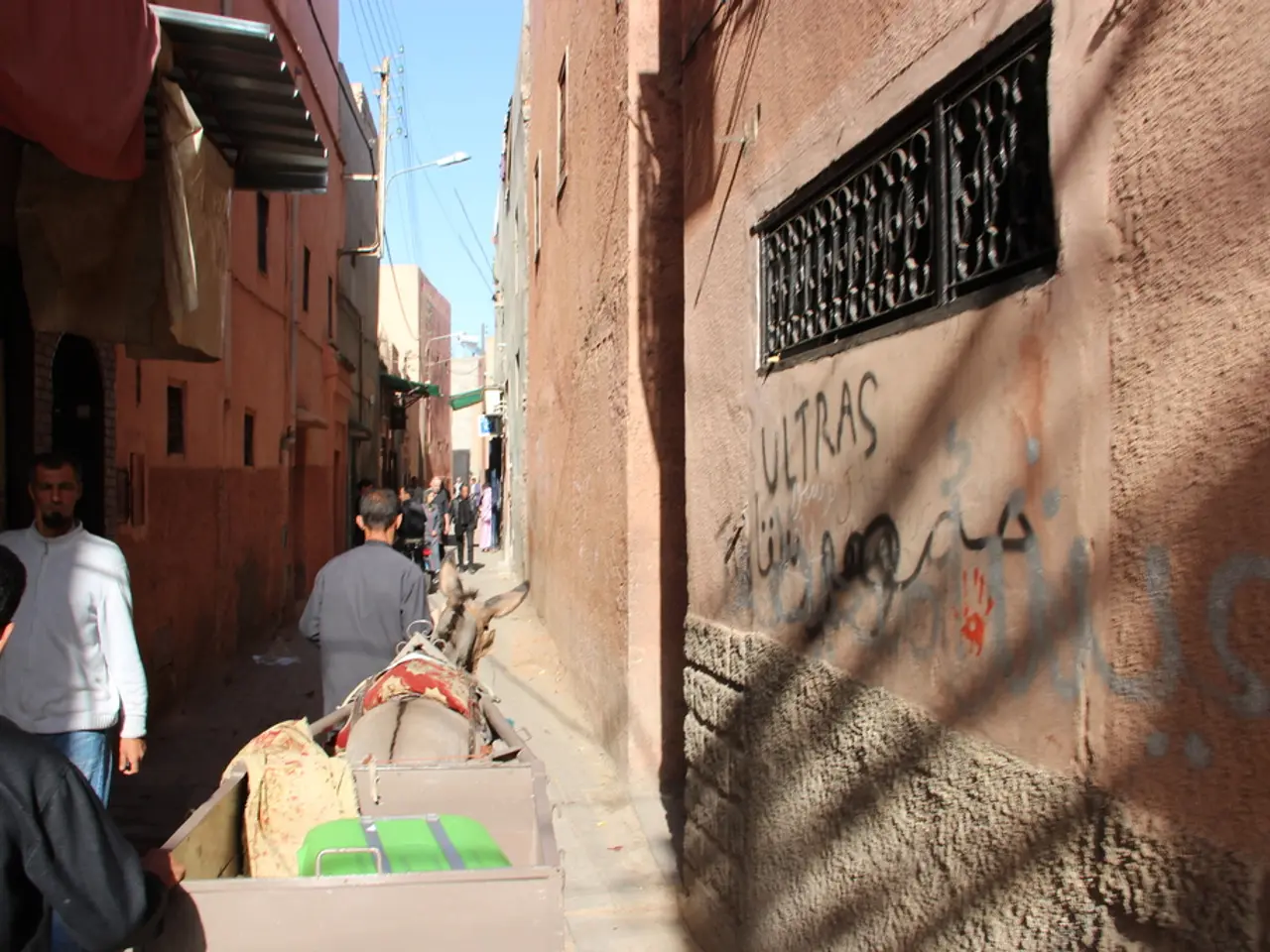Government court to consider case regarding Prime Minister's controversial audio tape scandal
In the heat of Thailand's political scene, Prime Minister Paetongtarn Shinawatra braces for the impending verdict of the Constitutional Court, scheduled for July 1. This decision could radically alter the landscape of Thai governance.
The petition, submitted by 36 senators, requests an investigation into a leaked audio clip that allegedly suggests the prime minister has breached the constitution, lacks integrity, and violated serious ethical standards. The senators also seek her temporary suspension pending the court's ruling.
At the heart of the controversy is a formal complaint, filed on June 19, accusing the prime minister of a lack of qualifications, the presence of prohibited characteristics, a lack of honesty, and engaging in conduct that constitutes a grave breach of ethical standards. They claim she abused her power by conflating personal interests with those of the state, thereby violating the principles of public interest and good governance.
The outcome of the Constitutional Court session could take several turns:
1. Temporary Suspension: The court may decide to suspend Paetongtarn while the case is under deliberation, potentially removing her from office temporarily. This decision would be based on allegations of serious ethical violations linked to her leaked conversation with former Cambodian PM Hun Sen, which some perceive as undermining Thailand’s stance on border disputes with Cambodia.
2. Rejection of the Petition: The court could also dismiss the petition due to lack of evidence, procedural grounds, or insufficient merit. This would allow Paetongtarn to continue in office. However, this decision might temporarily calm political tensions but could also invite criticism from opponents and the public, especially if concerns about the leaked audio remain unresolved.
3. Resignation: If political pressure intensifies, the prime minister might choose to resign. Her resignation would prompt the House of Representatives to select a new prime minister, likely from the current coalition if continuity is desired.
4. Dissolution of Parliament and Early Elections: If the prime minister or her party believe that a political reset is necessary, they might dissolve parliament and call for new elections. This scenario could lead to significant delays in government operations, including the approval and implementation of the 2026 fiscal budget and flagship policies.
These potential outcomes have broad implications:
Economic and Policy Uncertainty: Suspension, resignation, or dissolution could disrupt the legislative process, delaying the passage of the 2026 budget and affecting current economic programs. Ongoing political instability may unsettle markets and dent investor confidence, with potential impacts on both domestic and foreign investment.
Political Dynamics: The outcome could test the cohesion of the ruling coalition, especially if a new prime minister is selected from outside the current leadership circle. The situation remains volatile, with protests and public scrutiny likely to persist.
The July 1 Constitutional Court session will be pivotal, shaping Thailand’s political trajectory in the coming months. The future of the Pheu Thai-led government hangs in the balance, as does the stability of the nation.
In the face of mounting pressure, the upcoming Constitutional Court session on July 1 could lead to significant policy-and-legislation changes, as the decision could result in the temporary suspension, resignation, dissolution of Parliament, or rejection of the petition against Prime Minister Paetongtarn Shinawatra. General-news outlets and political commentators closely watch this war-and-conflicts controversy, given the potential implications for Thailand's economy, politics, and stability. Crime-and-justice factors are also at play, as the leaked audio clip allegedly shows Paetongtarn breaching ethical standards and undermining the nation's stance on border disputes.







